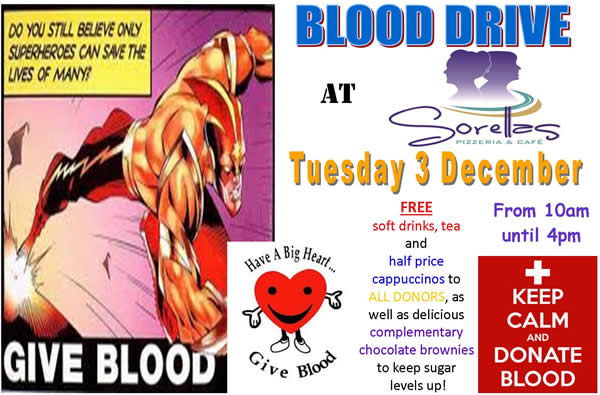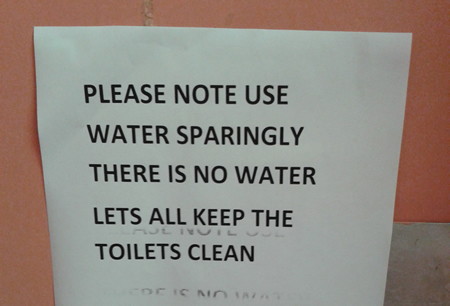Conversations
Posted on November 26th, 2013 by Bev Clark. Filed in Inspiration, Uncategorized, Zimbabwe Blog.Comments Off
Kubatana.net ~ an online community of Zimbabwean activists

You are cordially invited to
“100 HUNDRED”
Exhibition Launch
at Alliance Française
Thursday, 28 November at 5.30pm
Old Mutual Theatre at Alliance Française, 328 Herbert Chitepo Ave, Harare
Village Unhu & Alliance francaise are again pleased to present another exhibition titled ’100 hundred’ of paintings, graphics and multi media sculptures.
’100 Hundred’ simply meaning ten times ten, for the exhibition simply meaning a hundred works for a hundred each.
We are glad to feature works by, to only mention a few, Gareth Nyandoro, Wallen Mapondera, Shannon Murphy, Thandazani Dhlakama, James Jali, Moffat Takadiwa, Mattheus Nyaungwa, Misheck Masamvu and many others.
The Zimbabwe Human Rights NGO Forum shares this statement about the charges against Zimbabwean human rights lawyer Beatrice Mtetwa being dropped today:
In a week that shall always be remembered as consequential for the vindication of Zimbabwean human rights defenders and civil society organisations, on 26 November, Harare Magistrate Rumbidzai Mugwagwa delivered a verdict of not guilty in the Beatrice Mtetwa trial where charges of contravening Section 184 (1) (g) of the Criminal Law (Codification and Reform) Act.
The Prosecution had alleged that Mtetwa, a fiery and prominent human rights lawyer, had defeated or obstructed the course of justice. She was arrested on 17 March 2013 and had been defending the matter in court since 10 June 2013.
According to the Forum’s Court Report, The Magistrate gave reasons for her judgment saying that Mtetwa had done nothing to interfere with the investigations the police were conducting. She cited that the police testimony was contradictory and it did nothing to put the Mtetwa to her defence.
The inspection in loco conducted at the premises where the arrest was effected also served to cast the State’s case in doubt and bad light as it was established that there was no way Mtetwa could have interfered with what was going on in an area of the house where she could not see what was happening; whilst guarded and in handcuffs in a vehicle outside the premises.
The Magistrate castigated the police for presenting contradictory testaments when they are professionals whose work relies on observation. She also made it clear that it is not an offence to take photographs and in any case after forensic examination, Mtetwa’s phone was found without any evidence that photographs of the scene had been taken. The Magistrate found that there is no evidence that Mtetwa stopped or interfered with the search and returned a verdict of not guilty.
In addition to the Mtetwa case, on 22 November the same Magistrates Court acquitted Abel Chikomo, the Forum’s Director on charges of running an ‘illegal’ organisation. The details of the case and our analysis can be accessed here.
Both the Mtetwa and Chikomo cases are reminiscent of the infamous Glen View 29 case, in which Justice Bhunu chided police officers for their unprofessional conduct in arresting human rights campaigner Cynthia Manjoro and MDC-T youth assembly president Solomon Madzore and other activists as they did not have credible evidence linking them to the commission of the offence. In that case the judge said the police had arrested Manjoro as an inducement for her boyfriend to surrender himself to the police in connection with the commission of the offence. The Judge made these remarks on 19 September when he passed a not guilty verdict on 21 of the Glen View 29 activists who include Cynthia Manjoro, Solomon Madzore, Stanford Maengahama, and others.
Given this pattern where the police arrest human rights defenders and the judiciary takes a different stance, albeit, very late, could this be the beginning of a new era in the Zimbabwean Judiciary? The jury is still out on this. There is more to be said about Zimbabwe’s justice delivery system.

All this we hear about legalising makorokoza (panning) and reaching out to the West by relaxing the indigenisation project are just a heap of junk to cover up Zanu Pf’s desperation & failures. I do not want to see it as a coincidence that by the time Bruce Wharton is surprisingly proclaiming that the 31 July election was free and fair, Patrick Chinamasa was addressing western delegates with equal stun that he is giving them a reprieve on the indigenisation drive. It is absolutely nonsensical for anyone to believe that the planned formalisation of panning in Zimbabwe does not have a link with the recent public outcry that the Chinese are bullying us over our minerals using illegally acquired licenses to dig trenches in our rivers and fields. This is awfully far from empowering Zimbabweans because it is just a way of igniting anger and division over land degradation, invasion and destruction of our national heritage.
In fact, the only reason why the government is doing this is to cover their backs over the huge amount of corruption that is backpacked by the whole mining scandal. After all, if they are struggling to craft and enforce enough laws to protect the mining workers in formal companies now, what guarantee do we have that panning related deaths will not escalate if they legalise the looting of our minerals?
All this points to one thing in Zimbabwe, the desperation and pride in our nation’s leadership is forcing them to deliver our country on a silver platter for a song to other nations and drag all of us into their mess. The convergence of forces of merciless capitalism and totalitarianism in Zimbabwe right now is not by any measure crafted to bring empowerment to the commoner as noisily proclaimed, but instead expand the empire of tyranny.

In the office block where we work, there are about 30 offices, each with maybe 4 employees. So that’s about 120 workers, plus their various visitors, clients and passers through at the café and hair salon downstairs.
For the past ten days, there has not been municipal water. The borehole which the owners sunk for the building last year is dry. For a few days, the pump to the water tanks was broken. The building manager ordered a water delivery which lasted for about three days. Meanwhile, he’s struggling to get another delivery, and the water companies he phones tells him there is a backlog. No one has municipal water, and everyone is trying to order some.
Where does the bulk water we order come from? Some comes from legitimate sources, but some is pumped out of residential boreholes and city water recharge sources, further compromising the city’s water supply.
Like the recent Human Rights Watch video and report say – Never mind the quality of Harare’s water, even the supply is in crisis. Signs like this one at the toilet in our office block are the order of the day. We know there isn’t any water. We know to use it sparingly. But what we don’t know is when that’s going to change, and how.